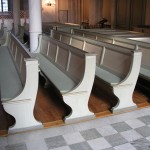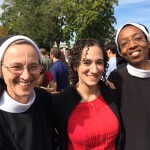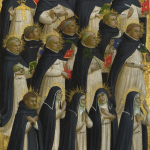 |
| Technically relevant to the content of this post |
I’ve been following in the footsteps of Luke of Common Sense Atheism and been spending more time on Less Wrong (the rationality/probability theory writings of Eliezer Yudkowsky — author of the fabulous fanfiction story Harry Potter and the Methods of Rationality). I thought I’d share the opening paragraphs of a post titled “Tsuyoku Naritai! (I Want To Become Stronger)”
In Orthodox Judaism there is a saying: “The previous generation is to the next one as angels are to men; the next generation is to the previous one as donkeys are to men.” This follows from the Orthodox Jewish belief that all Judaic law was given to Moses by God at Mount Sinai. After all, it’s not as if you could do an experiment to gain new halachic knowledge; the only way you can know is if someone tells you (who heard it from someone else, who heard it from God). Since there is no new source of information, it can only be degraded in transmission from generation to generation.
Thus, modern rabbis are not allowed to overrule ancient rabbis. Crawly things are ordinarily unkosher, but it is permissible to eat a worm found in an apple – the ancient rabbis believed the worm was spontaneously generated inside the apple, and therefore was part of the apple. A modern rabbi cannot say, “Yeah, well, the ancient rabbis knew diddly-squat about biology. Overruled!” A modern rabbi cannot possibly know a halachic principle the ancient rabbis did not, because how could the ancient rabbis have passed down the answer from Mount Sinai to him? Knowledge derives from authority, and therefore is only ever lost, not gained, as time passes.
This depressing, inevitable diminution of knowledge seems like it must be equally applicable to many forms of Christianity as it is to Orthodox Judaism. The endless schisming among sola scriptura sects seems like sufficient proof that the teachings they promote aren’t prima facie obvious and aren’t universally accessible.
However, I tend to talk more about Catholicism than generic Christianity on this blog, and I don’t need to look farther than the Vatican conference on extraterrestrial life to see that Catholicism thinks it is capable of tackling fundamentally new questions. (Or, at least, giving them new answers, which must be cold comfort to Giordano Bruno who was burned at the stake for a variety of cosmological heresies, including the idea of extraterrestrial life).
I know that Catholicism and other strands of Christianity allow for both public and private revelation (and, for Catholicism, private revelation can’t be interpreted as binding on all the faithful without a lot of investigation and discussion), but I’m not exactly sure where they fit into new questions and revision of old thought.
To use a math analogy, do the Scriptures provide a set of axioms, and Sacred Tradition guides the derivations of new theological theorems from that set? Was the set of axioms complete (i.e. capable of implying all necessary teachings) to start with or did revelation and study uncover previously unknown components of theology? Mark Shea wrote an interesting and thorough exegesis of the Church teaching on the sin of giving scandal, but although I can follow his logic, it’s still hard for me to see how you decide whether something is a valid derivation or a bit of not explicitly contradictory embroidery (cf. the strange homily I heard on Divine Mercy Sunday).
I’d be quite interested to hear how people think the conservation and revision of theology works in the comments. Does anyone subscribe to the tragic erosion Yudkowsky learned as an Orthodox Jew? If not, what mechanism keeps your church going right?
Super geeky addendum: If you believed that a certain subset of Christian theology was definitely true, and that several different theological ideas could be coupled with it to flesh it out, but each of these supplemental theologies was mutually exclusive with other couplings, the different pairings would be the theological equivalent of non-Euclidean geometry. In my head, I like to think of different sects as non-euclidean theology.












